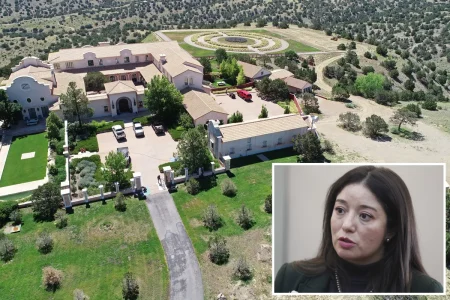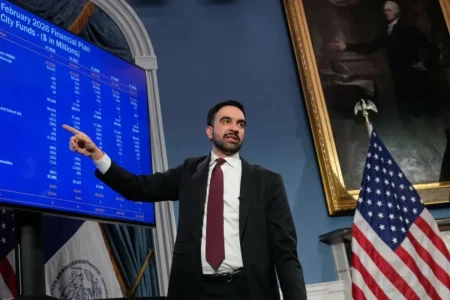Jimmy Carter’s journey from peanut farmer to president of the United States is a testament to the enduring American ideal of upward mobility. Born and raised in rural Plains, Georgia, Carter’s early life was steeped in the values of hard work, community, and religious faith. After graduating from the Naval Academy and serving in the nuclear submarine program, he returned to Plains to manage the family’s peanut farming business. His entry into politics began at the local level, serving in the Georgia State Senate and later as Governor. It was during his gubernatorial term that Carter began to cultivate a national profile, emphasizing honesty, integrity, and a commitment to the common man. This image resonated with a nation weary of political scandals and yearning for a fresh perspective, ultimately propelling him to the Democratic presidential nomination and a victory against incumbent Gerald Ford in the 1976 election. Carter’s presidency, while marked by significant achievements, was also plagued by a confluence of challenging circumstances that ultimately contributed to his defeat in his bid for re-election.
One of the defining achievements of Carter’s presidency was the successful negotiation of the Camp David Accords in 1978. Brokering a peace agreement between Egypt and Israel, two nations locked in a seemingly intractable conflict, was a monumental diplomatic triumph. Carter’s patient and persistent efforts at Camp David, sequestering himself with Egyptian President Anwar Sadat and Israeli Prime Minister Menachem Begin for thirteen days, ultimately led to the signing of a framework for peace. This historic agreement, which earned Carter, Sadat, and Begin the Nobel Peace Prize, resulted in the normalization of relations between Egypt and Israel, a landmark achievement that reshaped the political landscape of the Middle East. The Camp David Accords stand as a testament to Carter’s commitment to peaceful conflict resolution and his ability to navigate complex international relations. Even decades later, the accords remain a cornerstone of peace efforts in the region, highlighting Carter’s enduring legacy as a peacemaker.
Despite the success at Camp David, Carter’s presidency faced significant domestic challenges. The American economy was grappling with a combination of high inflation and unemployment, a phenomenon known as stagflation. Rising energy costs, exacerbated by the 1979 oil crisis, contributed to economic hardship for many Americans. Carter’s efforts to address these economic woes, including energy conservation initiatives and attempts to deregulate certain industries, met with mixed results and failed to fully alleviate the economic anxieties gripping the nation. Public dissatisfaction with the economy became a major factor in eroding public support for his administration. The economic turmoil of the late 1970s created a climate of uncertainty and frustration, which ultimately contributed to the perception that Carter’s administration was ineffective in addressing the nation’s economic problems.
Further complicating Carter’s presidency was the Iran hostage crisis, which began in November 1979 when Iranian revolutionaries seized the U.S. embassy in Tehran and held 52 American diplomats and citizens hostage. The crisis became a prolonged and agonizing ordeal, dominating headlines and captivating the nation’s attention for 444 days. Carter’s attempts to secure the release of the hostages, including diplomatic efforts and a failed rescue mission, were unsuccessful, further contributing to the perception of a weakened presidency. The hostage crisis cast a long shadow over Carter’s final year in office, symbolizing a sense of national powerlessness and undermining public confidence in his leadership. The protracted nature of the crisis and the inability to secure the hostages’ release fueled a sense of national frustration and contributed to a decline in Carter’s approval ratings.
Beyond these prominent challenges, Carter’s administration also grappled with other complex issues, including the Soviet invasion of Afghanistan in 1979, which further strained U.S.-Soviet relations and heightened Cold War tensions. Carter responded to the invasion by boycotting the 1980 Moscow Olympics and imposing grain embargoes on the Soviet Union, actions that reflected his commitment to human rights and opposition to Soviet expansionism. He also increased defense spending and pursued a more assertive foreign policy, signaling a shift away from the détente policies of the previous decade. While these actions underscored Carter’s commitment to standing up to Soviet aggression, they also contributed to a more volatile international climate.
Ultimately, the confluence of economic woes, the Iran hostage crisis, and rising international tensions created a challenging political landscape for Carter. In the 1980 presidential election, he faced a formidable challenge from Republican nominee Ronald Reagan, who effectively capitalized on public dissatisfaction with the Carter administration’s handling of the economy and the hostage crisis. Reagan’s message of optimism and his promise to restore American strength resonated with voters, leading to a decisive victory for the Republican challenger. While Carter’s single term in office was marked by significant challenges, his accomplishments, particularly the Camp David Accords, cemented his place in history as a significant figure in American foreign policy. His post-presidency work on human rights, democracy promotion, and global health further solidified his legacy as a dedicated public servant committed to making a positive impact on the world.








